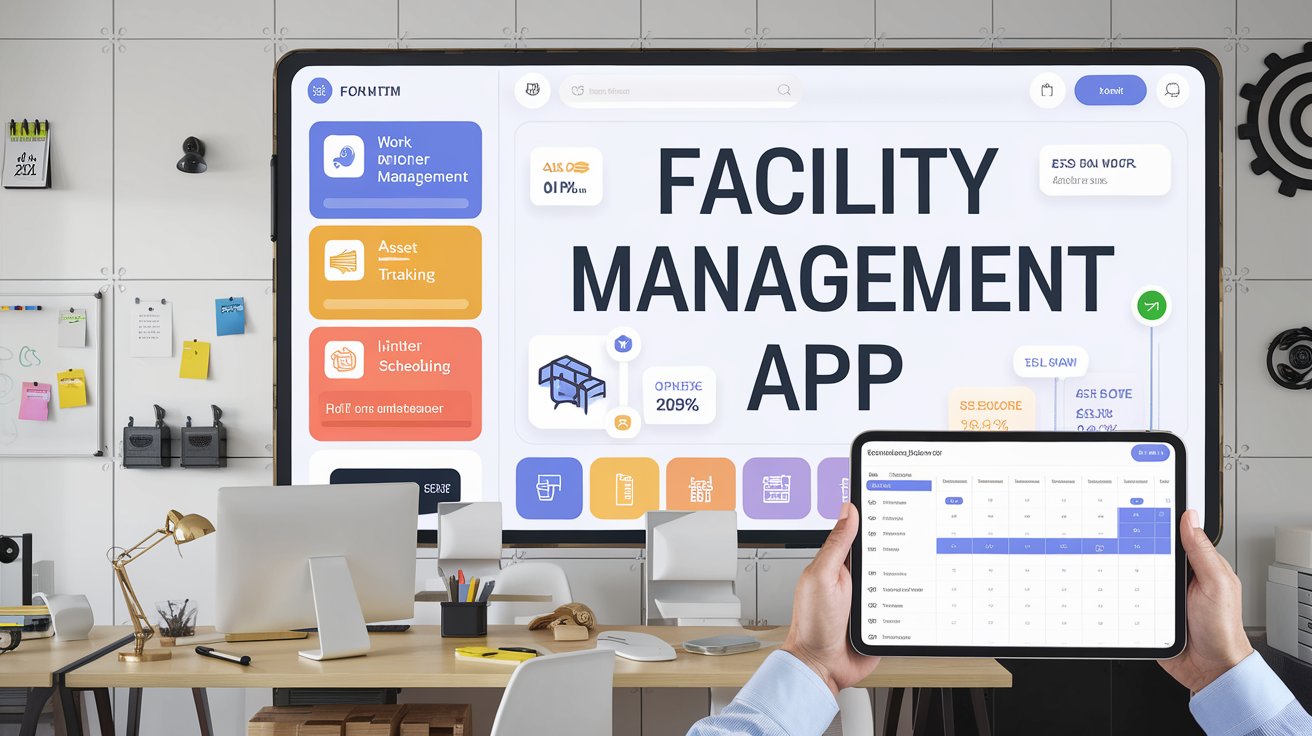In the continuously changing world of facilities management, efficiency, structure, and real-time communication have never been more important. Facility Management Apps have developed as critical tools, allowing businesses to streamline operations, improve maintenance processes, and boost productivity. This article discusses the main features, benefits, and future of facility management apps.

What is a Facility Management App?
A Facility Management App is a mobile or web-based application that allows facility managers to monitor and control many areas of a facility's operations. These apps offer full solutions for successful property management, including recording repair requests and controlling space utilization.
Key Features of Facility Management Apps
- Work Order Management: Facility management apps allow users to create, assign, and track work orders efficiently. This ensures timely responses to maintenance requests and better management of tasks.
- Asset Management: These apps help facility managers keep track of all assets, including equipment and furniture. Users can monitor the status, location, and maintenance history of each asset.
- Real-Time Communication: Facility management apps facilitate real-time communication between managers, staff, and contractors. This enhances collaboration and ensures everyone is informed about ongoing projects and maintenance activities.
- Scheduling and Calendar Management: Many apps include scheduling features that allow managers to plan and coordinate tasks effectively, ensuring optimal resource allocation and usage.
- Data Analytics and Reporting: Facility management apps offer reporting tools that provide insights into operations, maintenance trends, and overall performance. This data-driven approach helps managers make informed decisions and optimize facility operations.
Benefits of Using a Facility Management App
- Increased Efficiency: Automating routine tasks and providing a centralized platform for communication helps facility managers save time and reduce operational inefficiencies.
- Enhanced Maintenance Tracking: With real-time updates and notifications, facility managers can address maintenance issues promptly, minimizing downtime and improving user satisfaction.
- Cost Savings: By optimizing resource allocation and streamlining processes, facility management apps can lead to significant cost savings for organizations.
- Improved User Experience: Users can easily submit maintenance requests, track progress, and communicate with facility managers, resulting in a better overall experience.
- Greater Accountability: The ability to track work orders and maintenance activities ensures that tasks are completed on time, promoting accountability among staff and contractors.
See how it works—Request your demo today! https://axonator.com/request-for-demo/
Choosing the Right Facility Management App
When selecting a facility management app, consider the following factors:
- User-Friendliness: Look for an app that is intuitive and easy to navigate for all users, including facility managers, staff, and contractors.
- Integration Capabilities: Ensure the app can integrate with existing systems, such as accounting software or building management systems, to enhance functionality.
- Customization Options: Choose an app that allows customization to meet your specific facility management needs.
- Customer Support: Opt for a provider that offers robust customer support, including training resources and troubleshooting assistance.
- Pricing Structure: Consider your budget and evaluate the pricing model of the app, whether it is subscription-based or a one-time purchase.
The Future of Facility Management Apps
As technology advances, the future of facilities management apps appears hopeful. Artificial intelligence (AI) and the Internet of Things (IoT) are expected to expand the capabilities of these apps by enabling predictive maintenance, smart building management, and improved data analytics. As facility managers use these technologies, facility management activities will become more efficient and effective.
Facility Management Apps are transforming the way businesses manage their facilities, with a variety of features that improve productivity, communication, and responsibility. By implementing these new tools, facilities managers may streamline operations, improve maintenance processes, and provide a better customer experience. As the landscape of facility management evolves, investing in the proper app will be critical to being competitive and efficient.
